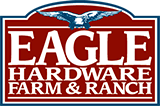
But it’s what you can’t see that makes Purina® Layena® Plus Omega-3 poultry feed truly unique. It’s made with flaxseed, which not only supports a healthy flock, but also provides enhanced nutrients in their eggs. While a typical egg provides a mere 65mg of Omega-3 fatty acids, an egg produced by healthy poultry fed exclusively on Purina® Layena® Plus Omega-3 poultry feed contains 200mg of Omega-3.
And like all Purina® SunFresh® Recipe poultry feeds, you can rest assured Purina® Layena® Plus Omega-3 poultry feed contains no added hormones, antibiotics, animal fat or animal by-products. Just wholesome goodness for a delicious, homegrown egg.
| FEATURES | BENEFITS |
| Formulated to produce 200mg Omega-3 per large egg* | 300% more Omega-3 than a typical egg! |
| Natural vegetarian formula without added antibiotics or hormones | Peace-of-mind – feed your birds like you feed your family |
| Superior Nutrition | Strong healthy birds lay plenty of wholesome eggs |
| Select level of marigold extract | Rich golden yolks. |
| Key levels of calcium and manganese | Strong shells with fewer cracks |
| Optimized level of Vitamin E | Supports a healthy immune system |
*When fed a diet of Layena® Plus Omega-3 exclusively for at least 3 weeks. Based on large egg (50g). Results may vary with factors such as total diet and hen health.
Feed Form: Pellets
How and When to Feed:
- Feed Purina® Layena® Plus Omega-3 pellets free-choice as the sole ration to free-range and confined laying chickens (including backyard egg producers, small to medium breeds and show and ornamentals) after 18 weeks of age and throughout the laying cycle.
- Purina® Layena® Plus Omega-3 pellets are best fed one month before hens begin to lay, but not any earlier than 18 weeks of age.
- Purina® Layena® Plus Omega-3 pellets can be fed to both adult male and female chickens, ducks, geese and turkeys.
- Always provide shelter and a constant supply of fresh, clean water.
- Consumption will vary depending upon season of the year, nutritional needs of the animals and availability of other foods.
Important:
A feeding program is only as effective as the management practices. Actual results can vary depending upon feed intake, environmental conditions and the quality of management practices.
